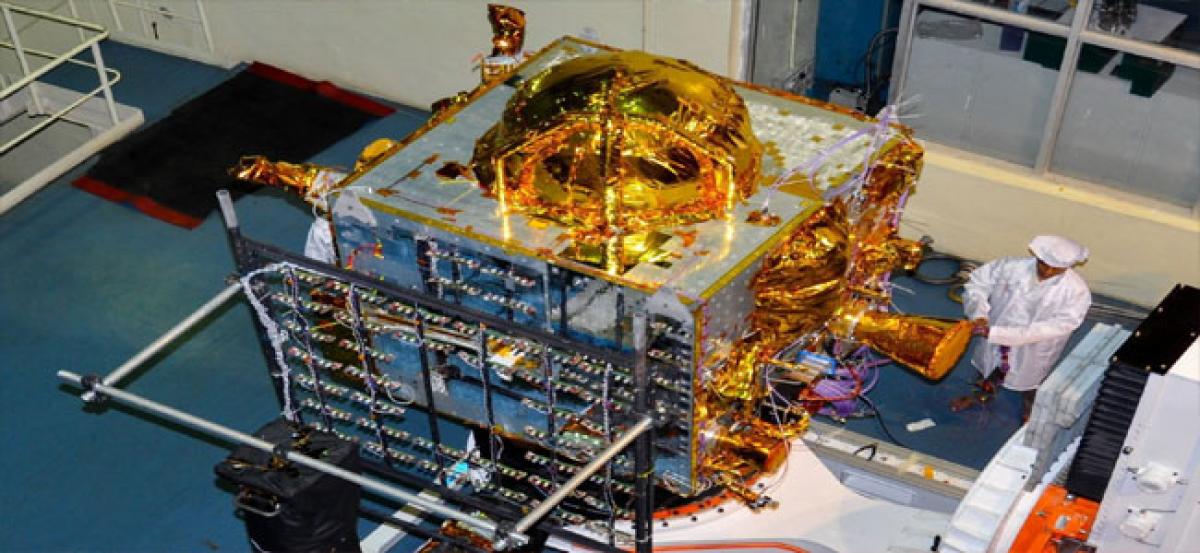Live
- Law to curb unfair practices in recruitment exams
- Telugu People Foundation members call on Pawan Kalyan
- Surekha has big plans to develop Vemulawada temple
- SRKR student to attend conference at Harvard College
- Muthoot Exim launches Gold Point Centre in Guntur
- Saibaba students advance to National Science Exhibition
- DCA raids unlicensed medical shops, seizes drugs
- Cong-BJP spar over Sidda’s 'horse trading' charge
- Ruckus over arrest of social media activists
- Cops intensify probe
Just In

The Indian Research Space Organisation (Isro) is gearing up to launch a back-up IRNSS-1A satellite in a bid to maintain the regional navigation satellite system of India fully operational. As part of its efforts, Isro is going to launch PSLV C39 on August 31 from the SHAR Centre.
Nellore: The Indian Research Space Organisation (Isro) is gearing up to launch a back-up IRNSS-1A satellite in a bid to maintain the regional navigation satellite system of India fully operational. As part of its efforts, Isro is going to launch PSLV C39 on August 31 from the SHAR Centre.
Highlights:
- IRNSS-1A, one of the seven satellites in the constellation of regional navigation system, suffered a technical glitch as atomic clocks on board it fail
- Isro is planning to replace IRNSS-1A with 1H as atomic clocks are important ingredient for obtaining precise data
The PSLV mission will inject the new satellite called the IRNSS-1H into orbit. This will replace IRNSS-1A, one of the seven satellites in the constellation, which was stumbled by the failure of the atomic clocks on board.
The Navigation Indian Constellation (NavIC) is an independent regional navigation satellite system developed by India which is designed to provide accurate position information service to users in India as well as the region extending up to 1,500 km from its periphery.
In fact, modern navigators rely on atomic clocks instead of old-style springs or pendulums, the natural resonances of atoms- usually cesium or rubidium-provide the steady ‘tick’ of an atomic clock. The Rs 1,420 crore satellite navigation system suffered a holdup in January last, when three rubidium atomic clocks of IRNSS-1A that was put into orbit on July 1, 2013, had stopped working. The Navigation Indian Constellation comprises seven satellites, including the IRNSS-1A, which is the first among them.
Each satellite was having three clocks and a total of 27 clocks were part of the navigation satellite system. They are important to provide precise data. So, the space organisation found it important to replace it instantly and decided to launch one of the two spare satellites as efforts to restart the clocks failed. Now, this launch will possibly make the system fully operational, according to sources.

© 2024 Hyderabad Media House Limited/The Hans India. All rights reserved. Powered by hocalwire.com







